By Patience Agdaba
Special to the Defender
By virtue of identifying or finding one’s place in race, it is often times a challenge to some people, and to others a collective pride for not having to identify to one’s race. For Blacks, it is often debatable as to who are Blacks? Are they any different from Africans? Who are African-Americans? It is quite an important subject that needs to be deeply looked into.
As an African and a foreigner in the United States of America , having to identify with my race is a part of me everyday of my life. I am aware of the different races in our society today and how these races are categorized on different materials or race columns. What interests me is the way races are decided upon and how they are passed on to us as final decision that has to be acceptable by everyone.
In Laney College , Blacks make up about one-third of the population of students and staff in the school. The other two-thirds are a combination of other races. Even among the Black population, questions such as "Where are you from?" "Are you African?" or "Are you African-American?" gets asked all the time.
These questions often trigger discussions amongst peers and other races who find it difficult to identify who is an African? and "Is there a difference between Blacks and Africans?"
Part II
On job applications and other materials containing statistical data on race sometimes get me confused. Some of these data could spell out the Black race in a column and at other times would interchange it with African-American.
It leaves me wondering if Black is the same with African-American. I am not sure what criteria were used in rating them both as the same, but I am pretty sure that it is considered to be the same for some reason.
I recall my first few months in America on every job application I fill; I get confused what to declare as my race, and whether to be marked out as an African-American or a Black.
This is because in my own understanding, being African-American means I was either born here in America or something while being an African incorporates a fine cultural background, strong ethics and moral values of a common people, well defined structural traditional values which make a huge difference.
Therefore, when I don’t see AFRICAN on race columns, I feel unease and tempted to put own column.
Blacks notwithstanding is a broad term used to describe a people who are of a Black origin? The question then becomes, who is an African? An African could be someone born in Africa or who is of African descendant. African Americans have a dual-identity. This is because they are Americans and also of the African origin.
One of my Asian friends said to me one day that it is very difficult for him to differentiate between “real” Africans and Blacks. When I asked him what he meant by “real” in his statement, he says he understands that the Blacks that are born in this country are not “real” Africans because of the significant differences he sees between “real” Africans and them.
These differences to him are; the accent, dressing patterns/styles, the kinds of food, facial structure, tribes, family structure, areas of interest, academic performance etc.
I was really perplexed with his findings because I have never really sat down to elaborate on these differences to understand if there is any truth to it.
Although some African Americans are yet to fully identify themselves with the motherland either out of curiosity or interest but some are definitely not considering themselves Africans or do not like to be called Africans.
For Quinesha (real names withheld), who doesn’t want to be called an African gave her reasons as thus, “there is just too much going on in Africa ; AIDS, poverty etc therefore, since I wasn’t born there, I don’t want to be considered as one.” On the other hand, Patrick (real names withheld) thinks because it is very difficult for him to flow with Blacks born in Africa , it is therefore impossible for people to mistake him for an African. To him, the accent and the way Africans carry themselves make it difficult to “flow” with them. He went further by saying that he thinks Africans are too reserve, conservative and shy in a lot of ways thereby making interaction difficult.
On the contrary, some Blacks born in America who has never been to the African continent before still have a very strong interest in learning about the different African cultures and values. This interest alone does make a huge difference between these interested minds and the likes of Quinesha and Patrick mentioned above.
However, it is pertinent to note that the reason some Blacks wouldn’t like to associate with Africans could be because of “self pride” and the impatience in learning about the different African cultures. Also, another factor could be the painstaking in getting used to the numerous African countries there are, the various tribes and ethnicity, the food, languages etc. Notwithstanding, the cost of taking a trip to Africa and the travelling distance involved has really discouraged most Blacks. Therefore, it becomes a personal decision as to do I want to be called an African because I am Black or I am an African because I am from the Motherland?
So, what’s the buzz in being a Black, an African or an African-American? Are they all the same meaning? Is it the skin color, different weather conditions, country of birth, difference in food, difference in cultural and moral values, accent, difference in looks, dress sense/code, family structure, languages, tribes, areas of interest etc that defines who an African is or because statistical data defines it as Blacks or African-American.
Blacks need to wake up and embrace one another in love and stop worrying about what they think about Africa . All the media does is neglect the beauty of Africa and stereotype AIDS, poverty and corruption for the world to see. Africa is full of life and rich in resources. Blacks could be called Africans if they identify themselves as one, and possess in them the reassurance of a better Black generation. Being Black is beauty itself and we glow in pride and not in shame or denial. We are the ones that have endured persecutions and war; therefore, we have to stay strongly in love, and not in separation. Unity should be our watchword, and there should be no “I” in place of “we” and “me” in place of “us” It would be a shame for Blacks to continue in disunity because we are all one from the Motherland, we should sing it loud with a collective Black voice.
Let’s not hate on one another because life is too short. We are the World’s greatest and should start living it. ONE LOVE!
Read more...




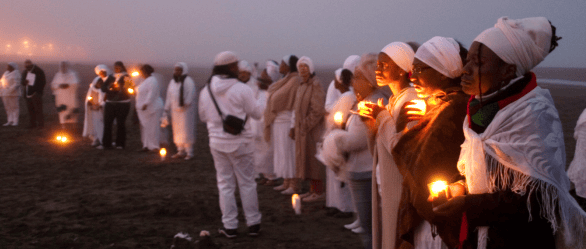
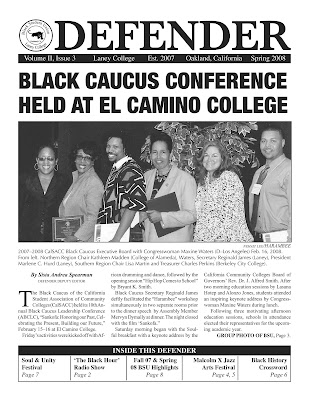
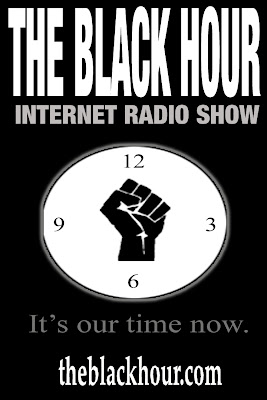

















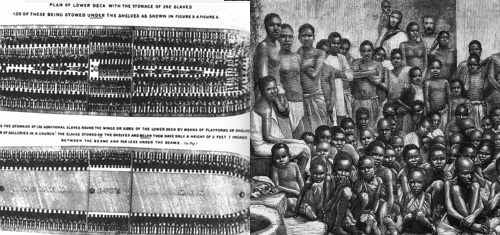

 Sabir gave a greeting and welcome as the circle was completed with nearly 300 African people awaiting sunrise and reconciliation.
Sabir gave a greeting and welcome as the circle was completed with nearly 300 African people awaiting sunrise and reconciliation.




 Meanwhile, children danced with the incoming waves, running after receding waters and retreating in anticipation as the tide climbed up the shore towards bare feet and tennis shoes alike.
Meanwhile, children danced with the incoming waves, running after receding waters and retreating in anticipation as the tide climbed up the shore towards bare feet and tennis shoes alike.

 Too many of the current generation of young students take ethnic studies course offerings for granted and don't realize that they could lose them, she warns.
Too many of the current generation of young students take ethnic studies course offerings for granted and don't realize that they could lose them, she warns.



 On Sept. 20, in solidary thousands of college students throught the country, the Laney Black Student Union held a rally in the quad to support the Jena Six. Over 20,000 people showed up in Jena for the National Day of Protest while a hundred students were in the Laney quad for the rally.
On Sept. 20, in solidary thousands of college students throught the country, the Laney Black Student Union held a rally in the quad to support the Jena Six. Over 20,000 people showed up in Jena for the National Day of Protest while a hundred students were in the Laney quad for the rally.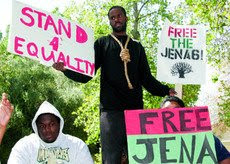



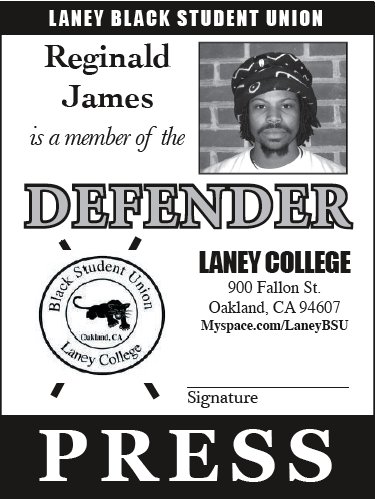


 Laney BSU members start form radio show.
Laney BSU members start form radio show. Laney BSU rallies to save Ethnic Studies at Laney College.
Laney BSU rallies to save Ethnic Studies at Laney College.